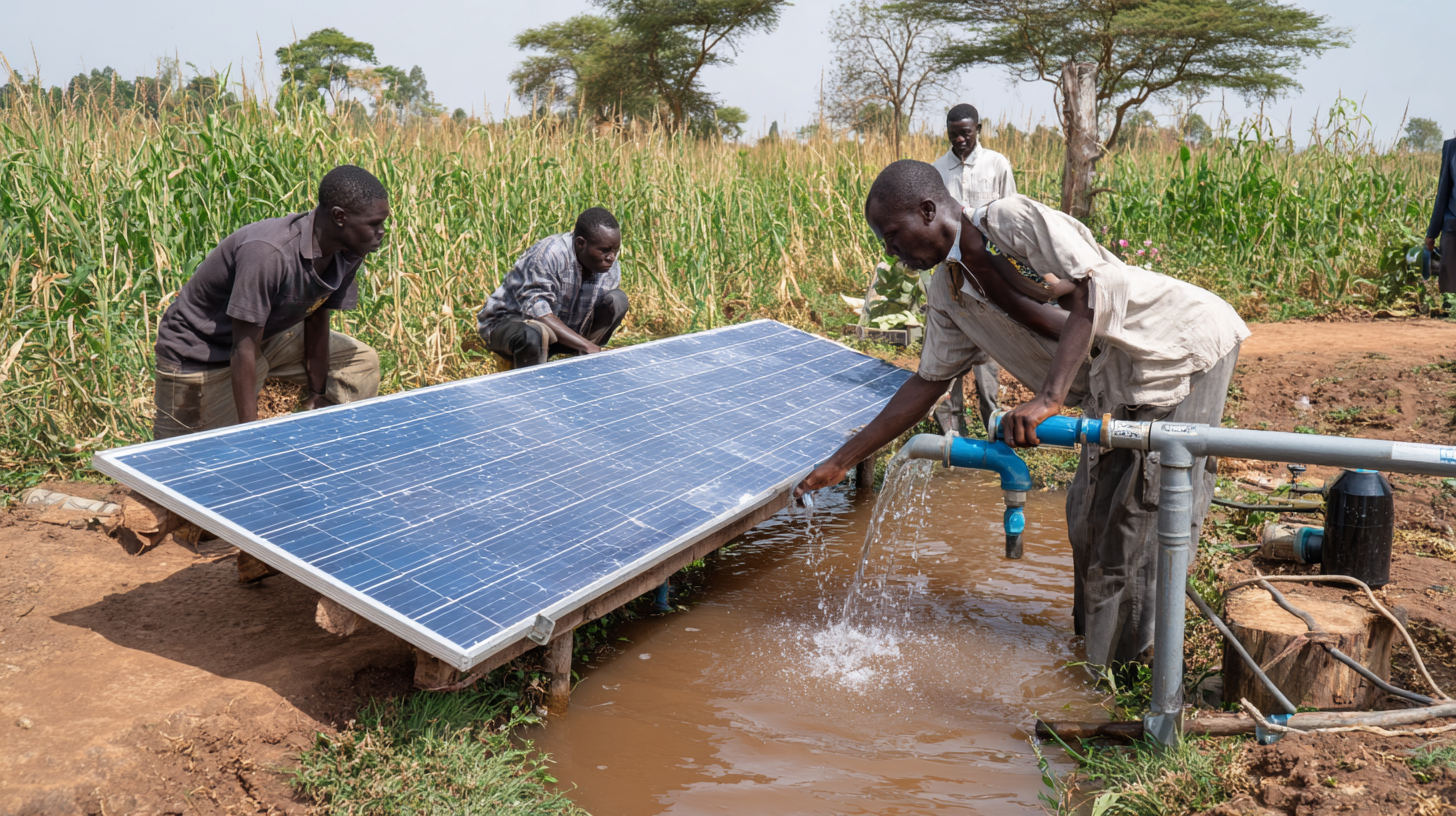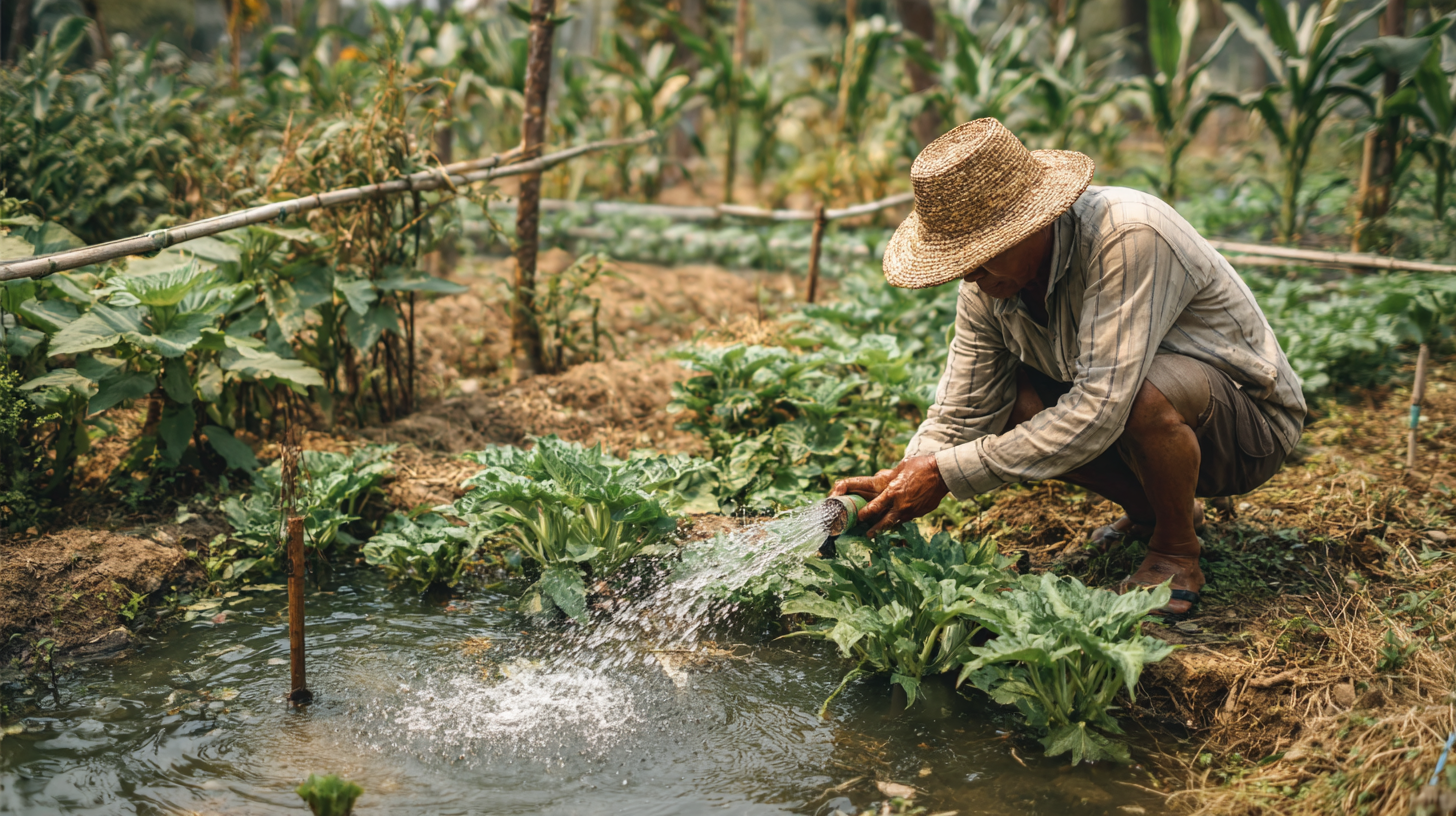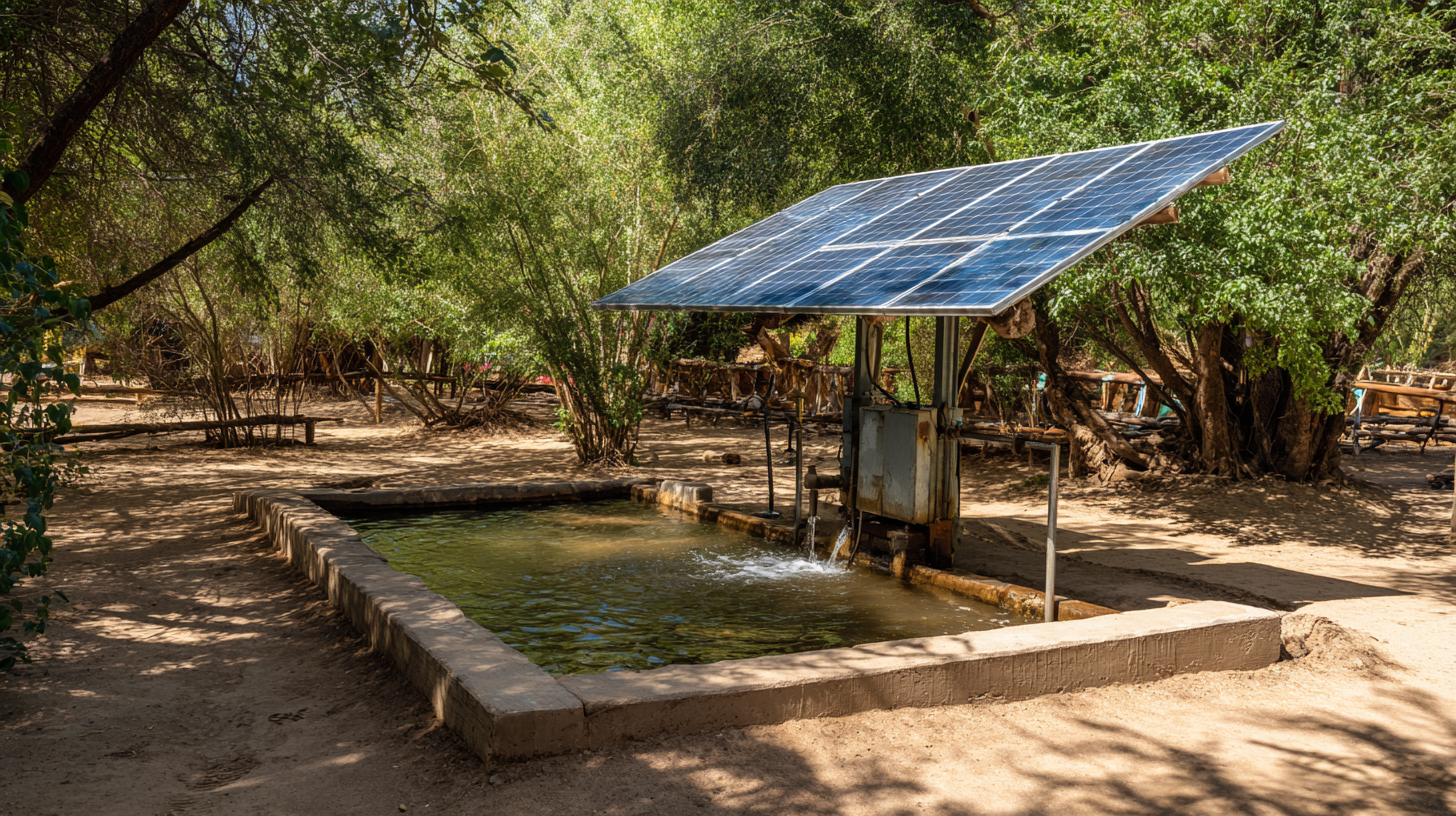Exploring Alternative Solutions: Top Solar Water Pump Options for Efficient Irrigation
The global market for solar water pumps for irrigation has witnessed significant growth, driven by the increasing demand for sustainable agricultural practices amid climate change challenges. According to a recent report by MarketsandMarkets, the solar water pump market is projected to reach USD 2.83 billion by 2025, expanding at a CAGR of 12.4% from 2020. This surge is fueled by rising awareness of the benefits of renewable energy sources, particularly in regions where traditional power sources are either limited or costly. Farmers are now opting for solar water pumps for irrigation, not only to enhance their water management but also to reduce operational costs. As technology continues to advance, a variety of options are becoming available, offering efficient and sustainable solutions tailored to meet the unique needs of different agricultural setups. In this blog, we will explore top solar water pump options that are setting new benchmarks for efficient irrigation.

Identifying Quality Suppliers for Solar Water Pumps: Key Criteria and Considerations
When selecting solar water pumps for efficient irrigation, it's crucial to identify quality suppliers that align with sustainable practices and economic viability. A strong supplier should offer a range of products that cater to the specific needs of smallholder farmers, who often face challenges with limited resources and inconsistent access to traditional energy sources. Not only should these suppliers provide robust warranties and reliable customer support, but they should also demonstrate a commitment to renewable energy principles, ensuring their products are designed for long-term efficiency and sustainability.
Key criteria to assess suppliers include their experience in the solar water pumping market, the variety of their product offerings, and evidence of their engagement with local communities. Suppliers who invest in research and development, as well as those who have established partnerships in regions such as Africa, can provide insight into successful business models that enhance productivity for users. Additionally, considering suppliers' adherence to rigorous health and safety standards in their operations can influence the overall effectiveness and reliability of the solar water pumps, ultimately leading to greater agricultural success and improved livelihoods for farmers.
Evaluating Different Types of Solar Water Pumps for Irrigation Efficiency
When considering efficient irrigation, solar water pumps emerge as an attractive alternative to traditional systems. These pumps harness solar energy, providing a sustainable source of power that is both cost-effective and environmentally friendly. Among the various types, submersible solar water pumps are particularly noteworthy for their ability to operate under water, making them ideal for deep wells. Their high efficiency and lower maintenance requirements make them a popular choice for farms requiring consistent water supply.
 On the other hand, surface solar water pumps are well-suited for applications where the water source is above ground. These pumps are easier to install and can be relocated without much hassle. They are particularly effective in agricultural setups that require frequent water movement across large areas. By evaluating these different types of solar water pumps, farmers can find the right solution that aligns with their specific irrigation needs, ensuring maximum efficiency and sustainability in their operations.
On the other hand, surface solar water pumps are well-suited for applications where the water source is above ground. These pumps are easier to install and can be relocated without much hassle. They are particularly effective in agricultural setups that require frequent water movement across large areas. By evaluating these different types of solar water pumps, farmers can find the right solution that aligns with their specific irrigation needs, ensuring maximum efficiency and sustainability in their operations.
Understanding the distinct advantages and operational parameters of each pump type is crucial for optimizing irrigation practices in a world increasingly focused on eco-friendly solutions.
Cost-Effectiveness Analysis: Balancing Initial Investment with Long-Term Savings
When considering solar water pump options for irrigation, a thorough cost-effectiveness analysis is essential. The initial investment in solar technology may seem daunting, yet the long-term savings on energy costs and maintenance can significantly outweigh these upfront expenses. Utilizing the Benefit-Cost Ratio (BCR) allows farmers and landowners to quantify the relationship between the costs incurred and the benefits gained. A high BCR indicates that the investment in solar water pumps could yield considerable financial returns over time, making them a prudent choice for sustainable irrigation.

Moreover, as the agricultural sector grapples with increasing energy demands and environmental sustainability, energy efficiency emerges as a critical factor. Implementing solar water pumps not only helps in reducing operating costs but also aligns with the growing trend towards eco-friendly farming practices. Although there may be short-term financial hurdles, innovative assistance programs can alleviate the burden, facilitating farmers' transition to more sustainable methods. In the long run, the advantages of investing in solar technology extend beyond mere savings—they contribute to resilient agricultural practices in an era of climate change.
Maximizing Performance: Essential Maintenance Tips for Solar Water Pumps
Maintaining solar water pumps is crucial for ensuring optimal performance and longevity, especially in agricultural applications where efficient irrigation is vital. Regular maintenance can increase the lifespan of these systems, which is particularly important given that a report from the International Renewable Energy Agency (IRENA) indicates that proper upkeep can extend system efficiency by up to 25%. Simple tasks such as regularly checking for debris in and around the pump, ensuring solar panels are clear of dirt and shading, and monitoring battery health can make a significant difference in performance.
Additionally, it's essential to conduct periodic inspections to identify wear and tear on components such as seals and pipes. A study published in the Journal of Renewable Energy emphasizes that neglecting maintenance can lead to a drop in pumping efficiency of nearly 30% over time. By implementing a robust maintenance schedule that includes cleaning and inspections at least every six months, users can enhance the reliability of their solar water pumps. This proactive approach not only mitigates potential costly repairs but also contributes to sustainable water management practices in irrigation, as highlighted by the Food and Agriculture Organization (FAO).
Exploring Alternative Solutions: Top Solar Water Pump Options for Efficient Irrigation
This chart illustrates the efficiency of various solar water pump options based on flow rate, power consumption, and average cost. The data helps in understanding which solutions could maximize irrigation efficiency.
Innovative Technologies Transforming Solar Water Pumping Solutions for Agriculture
As agricultural demands grow alongside environmental concerns, innovative technologies in solar water pumping are revolutionizing irrigation practices. Modern solar water pumps harness sunlight to provide efficient and sustainable water supply solutions, significantly reducing reliance on fossil fuels and minimizing operational costs. These systems feature advanced photovoltaic panels and smart controllers that optimize energy usage, ensuring reliable water access even in remote locations.
Furthermore, technological advancements have led to the development of high-efficiency pump designs and integrated storage solutions that enhance functionality. For instance, some systems incorporate smart sensors that monitor soil moisture levels, automating the irrigation process and ensuring crops receive the precise amount of water they need. This not only boosts crop yield but also promotes responsible water usage, addressing the urgent challenge of water scarcity in agriculture. As these innovative solar water pump technologies continue to evolve, they are positioned to play a crucial role in creating sustainable farming practices that benefit both farmers and the environment.
Contact Details
Address:
Solar Pump Solutions,
Borrisokane, Co. Tipperary, Ireland.
